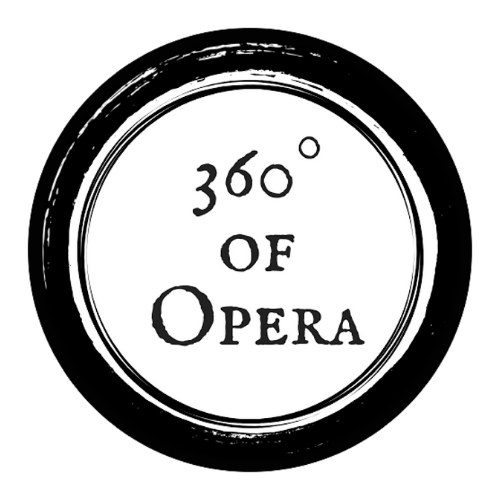RISING with Lawrence Brownlee
Photo Credit: Kia Caldwell
A #360ofOpera preview for Rising, new settings of Harlem Renaissance texts by contemporary black composers, to be performed by Tenor Lawrence Brownlee and Pianist Kevin J. Miller, at Princeton University Concerts on March 8, 2023. Written by Chloe Yutong Yang.
With Fire Shut Up in My Bones bringing a Black composer to the Metropolitan Opera for the first time in its 138-year history, and the heart-wrenching Dead Man Walking set to kick off its 2023–24 season, refreshing, socially-relevant new works are (re)introducing new audiences to opera. For tenor Lawrence Brownlee, a regular at world-class opera houses, frequent recitalist, and champion of new music, commissions tell new stories, share new experiences, and enlighten us with new perspectives that are not always seen in traditional classical music and opera.
In our interview before his recital with Princeton University Concerts (PUC) on March 8, Brownlee points out how the reality of arts administration mirrors the burned narratives of operas and their casting, “I’ve never been turned down for a part in an overtly racist manner, but I’ve come to understand a sort of code instead: ‘We have a different idea for the role’ is a common way I’ve experienced this type of inconspicuous bias.” As an Artistic Advisor for Opera Philadelphia, he wants to show that people like him can appear not just on stage, but in a more structural role as well, because “seeing yourself, or someone that looks like you, can be what encourages you to take that next step or continue putting yourself out there.”
To this end, Brownlee and his friend and collaborator, pianist Kevin J. Miller, worked with some of today’s most talented African-American composers to create Rising, a song cycle that “speaks not just to [the Black community’s] struggles, but to [their] triumphs,” setting to music poems from the giants of the Harlem Renaissance, which Encyclopedia Britannica defines as the “most influential movement in African American literary history.” With this new project that speaks to themes of joy, empowerment, faith, love, and strength in the face of challenge—particularly as it relates to the African-American community in the United States—Brownlee challenges the status quo, where Black male singers with lower-voice parts are “targeted . . . to play villain and antagonist roles rather than loving and sympathetic characters.”
Lawrence Brownlee, tenor and Kevin J. Miller, pianist. Photo: Princeton University Concerts.
As part of his time at Princeton, Brownlee will also visit Trenton Public Schools with Trenton Arts at Princeton to work with middle school music students as part of PUC’s “Neighborhood Music Project.” He will perform for and rehearse with students, as well as facilitate discussions around music. In our interview, he mentioned that he “cannot stress enough the importance of music education and exposure to the arts for the youth, especially for those in underserved and underrepresented communities.” He envisions an open, welcoming space, where art and music can be an important connecting moment of “we are the same here,” especially as we continue combating injustice in today’s world. Brownless said, “I strongly support and encourage young people who want to be part of . . . administrative and board roles, young people who not only have seen the issues we face in the industry, but have outside perspective and new knowledge in how to execute possible solutions.”
While Brownlee is hopeful that the next generation will be a pivotal part of ushering in an era of equity in music, he acknowledges that the chance to make the changes that can greatly impact even our present industry is available to all artistic organizations right now. Brownlee calls upon artists of every generation to contribute to the canon of music, so the whole story can be told, using the societal and current factors that influence our lives. He wants the audience to discover more of the “rich history of [his] people that they have maybe never heard,” and to leave wanting to know more. Before returning to present his recital to what he recalls as an “attentive and receptive group in that beautiful intimate space that provided a wonderful acoustic and atmosphere,” he leaves us with the following words of inspiration:
“When facing adversity, one of the only things we can do is what we do best. Find out what it is you do better than most, then narrow it down as much as you can and continue to gain a mastery of whatever skill this is. Moreover, the confidence you gain in having done so will set you apart from others even more. While it is unfortunate that people like us have to work harder to get our names out there and heard, all we can do is keep pushing harder.”
- written by Chloe Yutong Yang.



